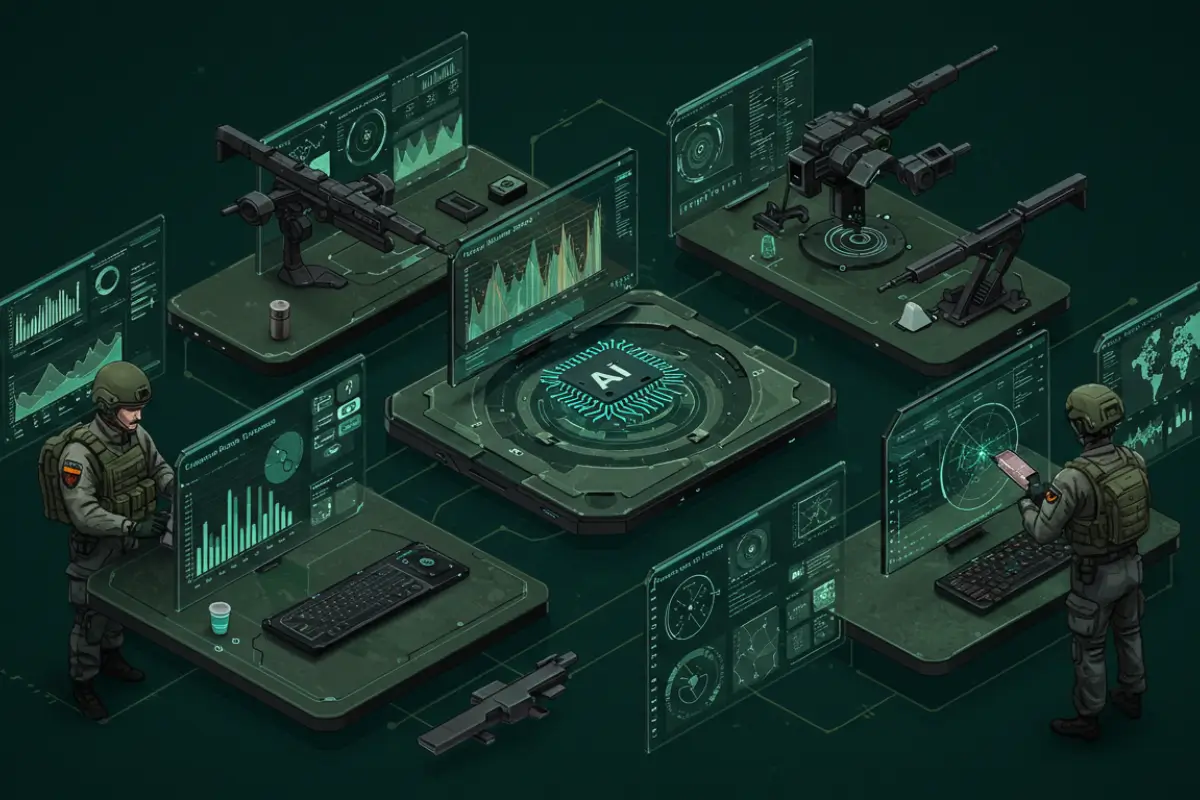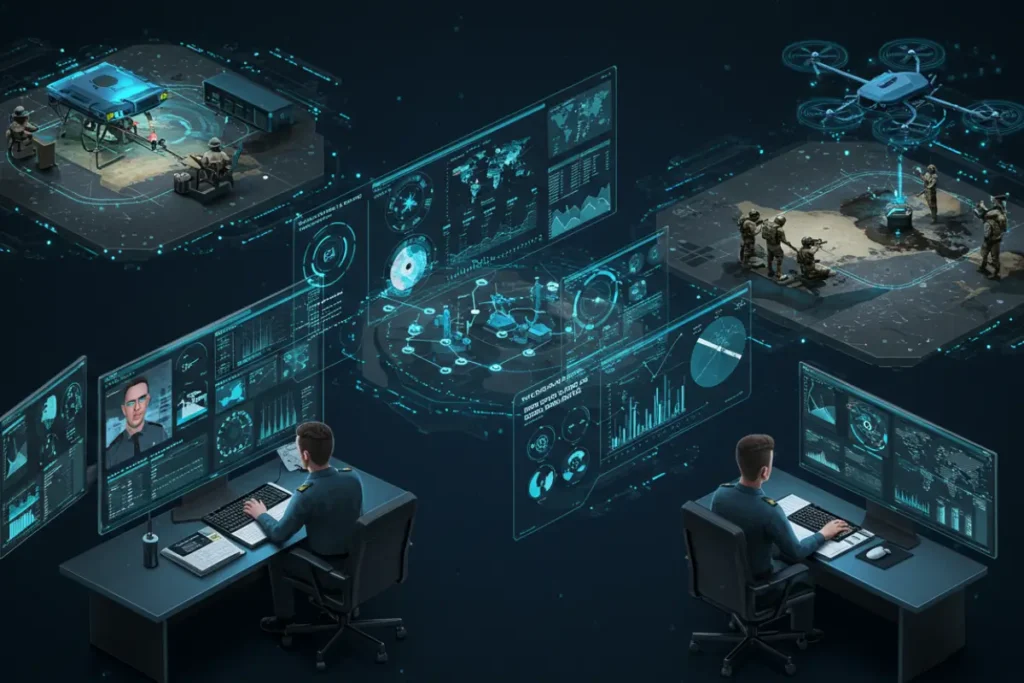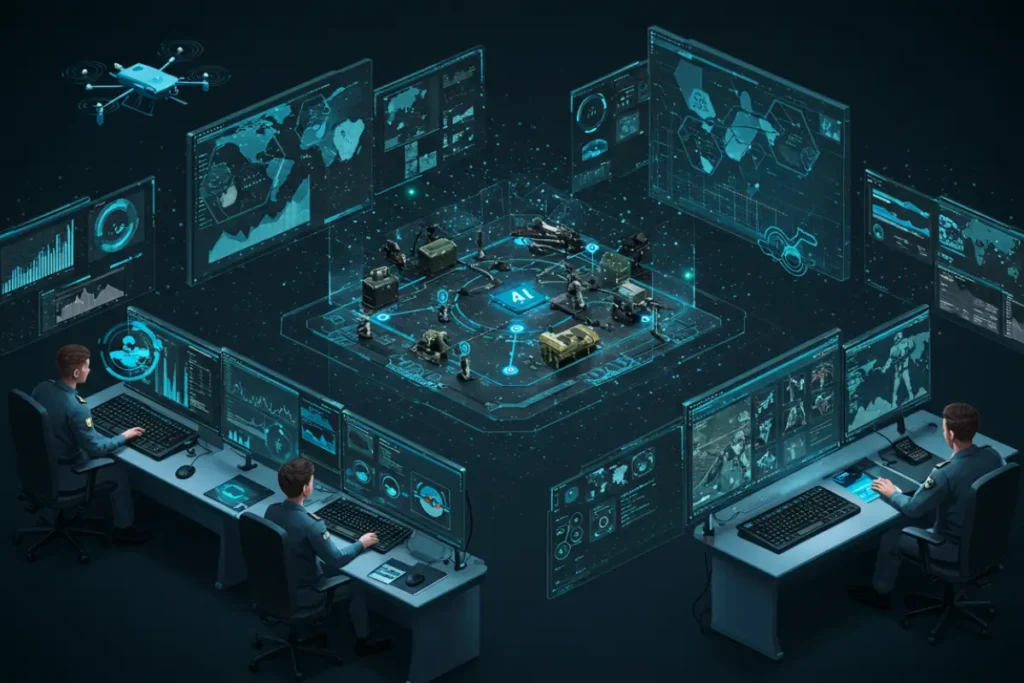How AI is Enhancing Military Strategy
- May 12, 2025
- 0
So, how do you understand the way AI is changing military strategy? It’s not just science fiction anymore — it’s reality, and it’s happening right now. From predictive
So, how do you understand the way AI is changing military strategy? It’s not just science fiction anymore — it’s reality, and it’s happening right now. From predictive

So, how do you understand the way AI is changing military strategy? It’s not just science fiction anymore — it’s reality, and it’s happening right now.
From predictive analysis to autonomous systems, AI is reshaping how military operations are planned, executed, and evaluated.
And trust me, it’s a game-changer that’s worth every second of attention. Let’s dive deep into how AI is truly revolutionizing military strategies in ways that were once unimaginable.

When I talk about AI in military strategy, I’m referring to the use of artificial intelligence to optimize decision-making, logistics, surveillance, and even combat scenarios. Think of it like having a hyper-intelligent assistant that can predict enemy movements, assess risks, and even suggest tactical moves in real time.
It’s almost like a futuristic chess game — except the stakes are way higher.
In fact, some military experts are calling AI the next frontier in warfare. Imagine drones that can assess a battlefield and provide instant feedback on enemy locations, or algorithms that can analyze satellite data to predict troop movements. It’s not just about firepower anymore — it’s about information and who can act on it faster.
One of the most incredible applications of AI in military strategy is its ability to provide real-time battlefield awareness. AI systems can analyze massive amounts of data from satellites, drones, and surveillance systems, compiling it into actionable intelligence in seconds.
Imagine being able to predict an ambush before it happens. That’s not just Hollywood stuff — it’s happening now.
For instance, AI-powered systems can track enemy vehicles, detect hidden weapons, and even identify individual soldiers through facial recognition. This level of data processing is mind-blowing. And when you’re in the heat of battle, every second counts.
And let’s not forget that AI isn’t just about fighting — it’s also about keeping soldiers safe. For instance, AI-powered drones can scout dangerous areas before ground troops move in, reducing the risk of ambushes and casualties.

Autonomous systems are another major area where AI is completely reshaping military strategy. Think drones, tanks, and even ships that can operate without human input.
These systems can be programmed to carry out reconnaissance missions, deliver supplies, or even engage targets, all while reducing the risk to human soldiers.
Imagine a drone that can fly through enemy territory, map out strategic points, and return with a complete intel package — all without a single soldier stepping foot into harm’s way. This is the future of warfare, and it’s being developed right now.
If you’re curious to learn more about how AI is evolving in other areas, check out The Future of AI in Space Exploration. It’s fascinating how much AI is impacting not just the military but other high-stakes fields too.

Now, before we go all gung-ho on the potential of AI in military strategy, let’s talk ethics. Yeah, it’s the elephant in the room — and it’s a big one. After all, if AI systems can decide who to target and when, what’s stopping them from making deadly mistakes?
This is where international law and human oversight come into play. Many experts argue that while AI can be an invaluable asset in warfare, it must always be under human control.
Otherwise, we could end up in a world where machines make life-or-death decisions without accountability. Scary thought, right?
And honestly, that’s why discussions about AI in military strategy are so crucial. It’s not just about technology — it’s about humanity and how we choose to wield this incredible power.
So, what do I think? Absolutely, AI is the future of military strategy, but it’s a double-edged sword. On one hand, it has the potential to save lives, prevent conflicts, and provide unmatched strategic insights. On the other hand, it’s a tool that, if misused, could escalate conflicts and create unforeseen dangers.
If you’re interested in exploring more about how AI is reshaping our world, don’t miss out on The Future of AI in Open World Games. It’s crazy how much AI is impacting everything from warfare to gaming and even daily life.
💥 Comment below: What are your thoughts on AI in military strategy? Is it a game-changer or a potential disaster waiting to happen? Let me know!
And hey, if you found this article insightful, don’t forget to share it with your friends and followers. Let’s get the conversation going. 🌐